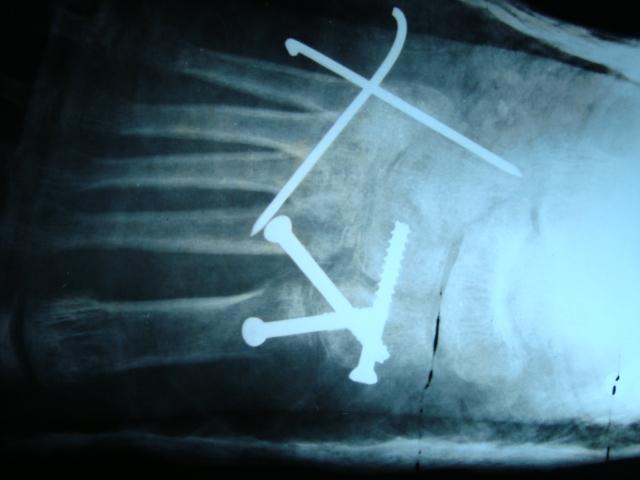Editorial
Case Report | Volume 7 | Issue 5 | JOCR Sep – Oct 2017 | Page 1-2 | Ashok Shyam. DOI: 10.13107/jocr.2250-0685.870
Why do we lack a Research Culture? Analysing the Indian Medical Landscape
Authors: Dr. Ashok Shyam
Department of Orthopaedic, Sancheti Institute for Orthopaedics and Rehabilitation, Pune, India.
E-mail: drashokshyam@gmail.com
The focussed goal of Indian Orthopaedic Research group is to promote orthopaedic research in India. We have been working since last 8 years but I think we are not able to achieve the success that we wished for. Certain positive steps like starting journals, running research workshops, setting up academic research divisions were taken, but the impact is very limited. I believe we have now identified one of the main the reason for our failure. The lack of research culture among our students and colleagues is the major roadblock in the success of any research initiative. Simply put we lack the culture of research which begins with our lack of reading. Reading is the base principle on which all knowledge propagation is based on and lack of reading is affecting this is a major way as far as orthopaedic research in India is concerned. There are various aspects of reading that needs to be looked at, especially what is been read and comprehension of what is been read. Our undergraduate students read a lot, but they have always been traditionally taught to read textbooks. There is no initiative to prime them for reading journal articles and most of the post graduate students have never even seen a journal article in their lives when they first enrol. There are major differences between reading text books and reading journals. The first difference is the format of both these literature. Textbooks are seamless interpretation of data and knowledge most of the time seamed together by wisdom of the author of the chapter or book. The format of textbook is to provide answers to all queries and not raise new ones. Reading a textbook gives an impression (to rather impressionable young minds) that answer to everything is already known . If you read a disease from any major textbook, you will find etiology, pathology, investigation and managements all given without any ambiguity. There seems hardly any area which is not answered and all students accept this viewpoint throughout their undergraduate education. There are no questions arising from reading textbooks, questions which form the core of research culture are not even allowed in the minds of our undergraduates. Without questions, a drive to find answers, through research will never be initiated. Secondly what passes as textbooks today is also a matter of concern. Most book that the students read are simply formatted as exam notes which are meant to help them pass exams, rather than help them acquire knowledge and develop wisdom. This is the reason why most of our students are high on information but poor on knowledge. Reading these textbooks again completely lacks any scope of developing curiosity and a questioning mind. When students complete their under graduation the entire 6 years including internship is based on this format and there is hardly any scope of research and research culture. After they complete their under-graduation they start preparing for the entrance examination which is completely a multiple choice question format. So the reading steps down from textbooks to reading MCQ books. So when students enrol with us in post-graduation program, they have read 6 years of exam oriented textbooks and one or two years of MCQ books. This is the base of literature on which we try to develop the culture of reading journal article and an interest in research. It is no wonder that Indian Orthopaedic Research group has failed to dent the research scenario in the country even after trying for so many years. For that matter most of the other fields of medicine are also struggling with the same. Another important aspect is non-involvement of undergraduates in Research projects. We hardly see any undergraduate noted as author in research publications from this country. I don’t think our students lack intelligence or lack initiative, it’s just that they do not have a direction. If the faculty tries to involve undergraduate students or even a group of undergraduate students in small research projects it will help a lot. Even if students are involved in simple literature review projects, they would be exposed to read journal articles and formulate reviews. This habit when introduced early in life would be very helpful and also is of great importance for another reason too. Reading with comprehension is the key to reading journal articles. Superficial reading of journal articles is as bad as it is dangerous, especially with the flood of predatory journals and bad literature being published. The earlier the students are exposed to these concepts the better it would be develop the correct research acumen and also be smart about the research projects. They will learn to read and comprehend a journal article and make sense of it. They would understand about levels of evidence and will be able to detect low evidence article and bad research. This one step of inclusion or introduction of research in undergraduate curriculum would go a long way in improving the research culture and I would urge the universities and medical academic bodies to take note of this. Indian Orthopaedic Research group will also work on develop an acceptable model for initiating REsearch Culture in UndergraduatE (RESCUE) medical curriculum. This will definitely require a conscious attempt from all the involved parties and should be thought of as a long term plan
We are hopeful that since we have identified a major issue, we will be able to come up with strategies to resolve it. We invite readers’ comments and suggestions on the topic and request you to please write to us on editor.jocr@gmail.com
Regards
Dr Ashok Shyam
Editor – JOCR
| How to Cite This Article: Shyam A. Why do we lack a Research Culture? Analysing the Indian Medical Landscape. Journal of Orthopaedic Case Reports 2017 Sep-Oct;7(5):1-2. |
[Full Text HTML] [Full Text PDF] [XML]
[rate_this_page]
Dear Reader, We are very excited about New Features in JOCR. Please do let us know what you think by Clicking on the Sliding “Feedback Form” button on the <<< left of the page or sending a mail to us at editor.jocr@gmail.com





